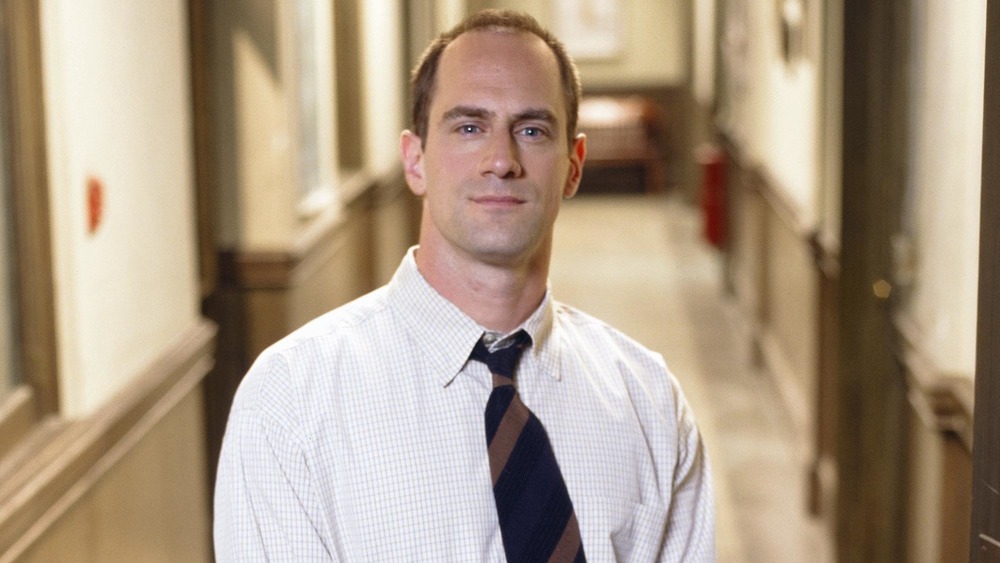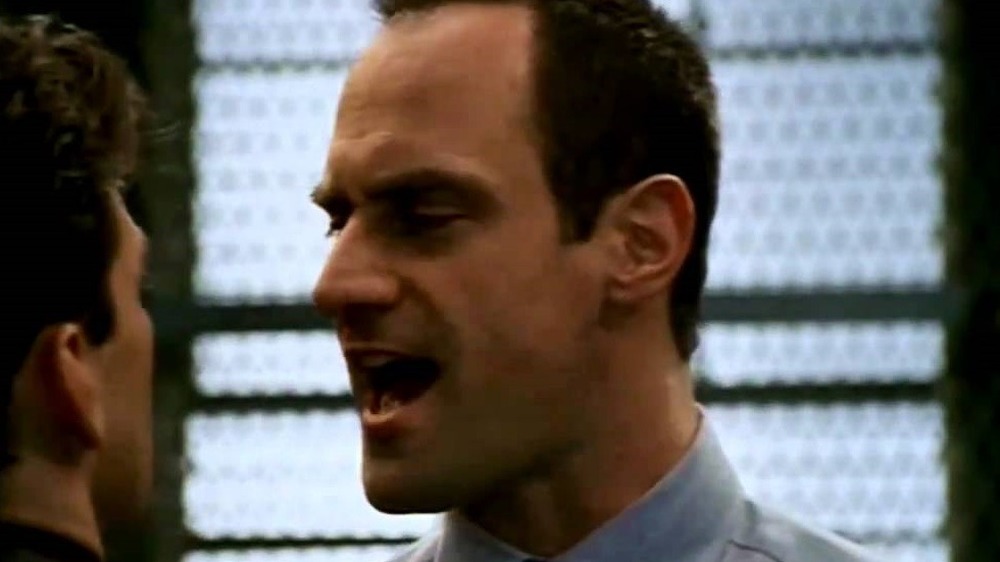Why Elliot Stabler Should Be In Jail On Law & Order: SVU
If there's one thing most Law & Order: SVU fans can agree on, it's their love of Detective Elliot Stabler (Christopher Meloni). The gruff partner of Olivia Benson (Mariska Hargitay) may have left the show after season 12, but he has lived on in the hearts and minds of viewers. So much so that news that he would be making an appearance on SVU's landmark season 22 — ahead of his own upcoming spin-off series, Law & Order: Organized Crime — sent fans into a frenzy.
But it's important to make the distinction that, although Stabler is a well-loved TV detective, it doesn't mean that, if he was a detective in real life, he would get the same reception. It's easy to root for Stabler's self-professed dedication to getting justice for victims while watching him on TV, but it's important to remember that SVU is sensationalized fiction. In real life, a lot of Stabler's more intense moments would likely constitute acts of police brutality.
Looper reached out to former criminal prosecutor David Fleck to get a professional opinion on some of Stabler's more questionable moments on the show. After showing him a compilation of Stabler roughing up some suspects, Fleck told us, "Elliot Stabler should be in jail for numerous assaults on suspects...Several of the assaults in those clips might even be characterized as attempted murder by an aggressive prosecutor." That's not all. Fleck concluded, "He is an unstable person, he is a menace to society, and he gives all law enforcement officers a bad name."
Here's why Fleck thinks that Stabler should be off the force and behind bars.
Elliot Stabler gets too emotionally invested in his cases on SVU
There's an obvious answer for why, in the real world, Stabler would hopefully face serious repercussions for his behavior: namely, that he sometimes physically assaults suspects in the cases he's working. But as Fleck sees it, the root of the problem is also one of the reasons so many fans love the character: he's too invested. When we asked Fleck if he'd experienced detectives who behaved similarly to Stabler, he said that he had not, and contrasted the types of detectives he's used to working with and Stabler: "As a prosecutor, I worked with very professional detectives who did their jobs and did not get emotionally involved in their cases."
As for what punishment Stabler would be likely to face, Fleck pointed to other cops who've stepped out of bounds receiving "desk duty" or being placed on administrative leave "while their conduct is investigated." Sometimes, of course, members of law enforcement are fired for such conduct. And while Fleck felt that Stabler's colleagues likely wouldn't turn a blind eye to his violent tendencies, he made a point of emphasizing that his opinion was based only on his own experiences. "If you were to ask a civil rights lawyer for examples of physical aggression by detectives, I bet they could recount some awful incidents," he said.
Of course, sometimes members of law enforcement escape repercussions when they step out of line. But, in Fleck's opinion, a cop who behaves like Stabler shouldn't get away with it.

